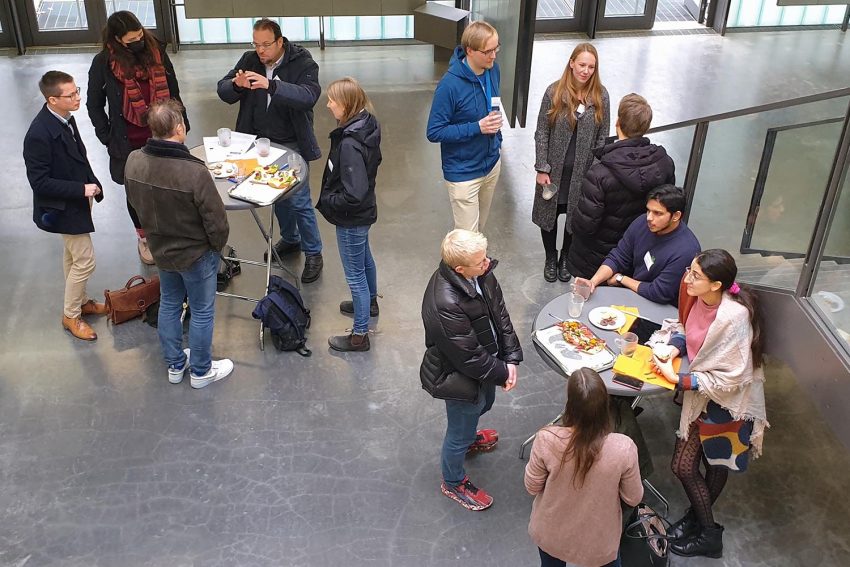Matchmaking for innovative research projects Eight projects funded in first round of "Interdisciplinary Collaboration" seed funding programme
The first round of the “Interdisciplinary Collaboration” funding programme was successful: 30 interdisciplinary projects from a wide range of disciplines and subjects at Technische Universität Braunschweig submitted their applications. Eight of them have now received approval for the eight-month funding of around €15,000. The funding programme encourages interdisciplinary cooperation and supports the development and expansion of interdisciplinary research projects.

The matchmaking workshop in December 2022 was the starting point for numerous interdisciplinary project ideas. Photo credit: Projekthaus/TU Braunschweig
The funding programme “Interdisciplinary Collaboration” pursues the goal of promoting interdisciplinary research collaborations and anchoring them sustainably at TU Braunschweig. The aim was to find concepts for research projects that would contribute to the establishment of interdisciplinary research in the long term. To this end, a matchmaking workshop took place last December at which 50 participating researchers from different disciplines networked with each other and exchanged ideas. The workshop resulted in 30 interdisciplinary project proposals, from which a commission selected eight submissions for funding of up to 15,000 €. The funding is made possible by the programme “Exzellenz stärken” (“Strengthening Excellence”) of the Lower Saxony Ministry of Science and Culture.
Outstanding quality of project proposals
Prof. Peter Hecker, Vice President for Research and Early Career Scientists, and Prof. Katja Koch, Vice President for Organisational Development and Teacher Training, are very satisfied with the results of the first round of the “Interdisciplinary Collaboration” programme. “The programme is off to a very good start, the quality of the interdisciplinary proposals is excellent. Highly innovative ideas were submitted that meet the commission’s criteria of interdisciplinarity, certainty of results and feasibility,” says Prof. Hecker.
“We are pleased that there has obviously already been a lot of interdisciplinary exchange in the proposal phase after the matchmaking workshop, leading to valuable collaboration on the interesting proposals. This shows how much potential interdisciplinary approaches hold in terms of research questions and also methodology,” said Prof. Koch.
The selection committee also noted that a very large number of early career researchers participated in the submissions and that the projects establish regional as well as international connections. A second round of funding is already planned. The interdisciplinary teams that came away empty-handed in the first round of funding can seek advice from Research Services on other funding opportunities.
Further information and an overview of the funded projects can be found on the Research Services webpage.
Text: Dr. Alice Altissimo
